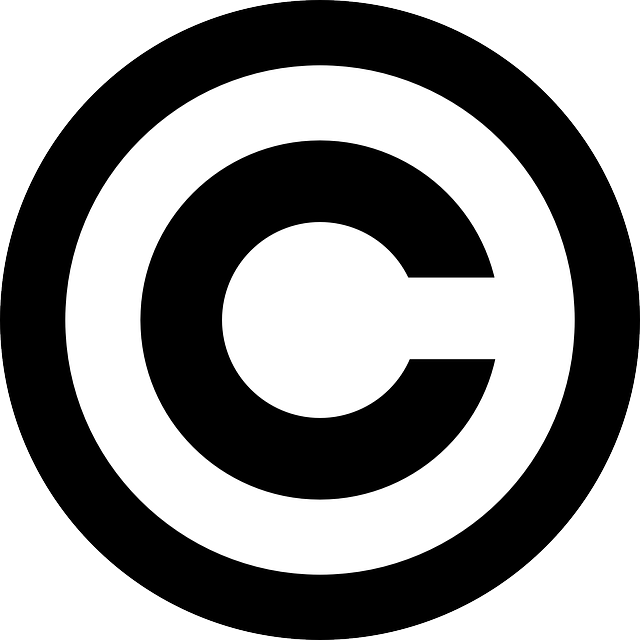In today's globalized market, accurate translations of UK intellectual property (IP) documents are crucial for businesses aiming to protect and expand their brand reach internationally. Specialized UK Intellectual Property Documents translation services are vital due to the complex legal framework, technical terminology, and cultural nuances involved. These professionals ensure compliance with local laws, maintain document validity, and avoid potential legal issues by providing linguistically correct and culturally sensitive translations. With advancements in technology, the future of IP document translation looks promising, with increased efficiency, accuracy, and secure data management.
Professional translations play a vital role in navigating the complexities of global intellectual property (IP) law. In the UK, where IP protections are renowned worldwide, accurate translations of copyright, trademark, and patent filings are essential for international recognition and enforcement. This comprehensive guide explores the intricacies of UK Intellectual Property Law, highlighting the significance of professional translation services in facilitating smooth navigation across borders. We delve into common challenges, best practices, provider selection criteria, technical considerations, legal ethics, case studies, and future trends shaping the landscape of IP document translation services.
- Understanding UK Intellectual Property Law and Its Global Recognition
- The Role of Professional Translations in IP Filings
- Common Challenges in Translating Copyright, Trademark, and Patent Documents
- Ensuring Precision: Best Practices for Accurate Translations
- Choosing the Right Language Services Provider for Your IP Documentation
- Technical Considerations in Patent Translation Services
- Legal and Ethical Responsibilities in Intellectual Property Translation
- Case Studies: Successful Professional Translations of IP Filings
- The Future of IP Document Translation: Trends and Innovations
Understanding UK Intellectual Property Law and Its Global Recognition

The UK has a robust intellectual property (IP) legal framework, which is widely recognised and respected globally. When it comes to translations of copyright, trademark, and patent filings, understanding this intricate system is paramount. UK Intellectual Property Documents translation services must not only capture the precise technical language but also adhere to the country’s specific laws and regulations.
The global recognition of UK IP law ensures that documents translated for international use maintain their legal validity and strength. This is particularly important in today’s digital age, where businesses operate across borders. Accurate translations are crucial to safeguarding rights, ensuring protection, and facilitating smooth international trade.
The Role of Professional Translations in IP Filings

Professional translations play a pivotal role in the process of filing for intellectual property (IP) rights, particularly in a globalised market like the UK. Accurate and culturally sensitive document translation services are essential when navigating complex IP laws and ensuring your application’s success. The UK Intellectual Property Documents translation services should be tailored to meet the specific requirements of patent, trademark, or copyright applications, as these documents often involve technical terminology and legal nuances that require expertise.
Hiring professional translators ensures that your IP filings are not only linguistically correct but also compliant with local regulations. They possess a deep understanding of both languages and intellectual property concepts, enabling them to convey the intended meaning precisely and adapt to any stylistic or cultural differences. This is crucial when dealing with international applications, as it increases the chances of a smooth filing process and a positive outcome from the UK’s Intellectual Property Office (UKIPO).
Common Challenges in Translating Copyright, Trademark, and Patent Documents

When it comes to translating UK intellectual property (IP) documents, such as copyright, trademark, and patent filings, professionals face several unique challenges. One of the primary hurdles is navigating complex legal terminology and ensuring precise translations that accurately convey the original meaning and intent. Different countries have distinct IP laws, and what may be considered a minor detail in one language can hold significant weight in another, potentially impacting the validity of the filing.
Another challenge lies in maintaining consistency across multiple documents and languages. Trademarks, for instance, often require consistent use of specific terms to preserve their uniqueness and strength. Patent applications involve detailed technical descriptions that demand precise translation without losing critical context or introducing ambiguity. Moreover, cultural nuances play a significant role; what is acceptable in one language or region may need adjustment to respect local customs and legal norms, ensuring the translated documents are suitable for international review and acceptance.
Ensuring Precision: Best Practices for Accurate Translations

When it comes to professional translations of UK Intellectual Property (IP) documents, such as copyright, trademark, and patent filings, accuracy is paramount. Mistranslations can lead to legal complications, loss of intellectual property rights, or even misunderstandings that hinder business growth. To ensure precision, follow these best practices when engaging UK IP documents translation services:
First and foremost, always use qualified translators with specialized knowledge in IP law. These experts not only understand the technical terminology but also have a grasp of the legal nuances specific to the UK market. Additionally, comprehensive quality assurance processes are essential. This includes proofreading by native speakers, cross-checking against original documents, and utilizing translation memory tools to maintain consistency across terms and phrases. Remember, even the smallest error in a patent application or trademark registration can have significant consequences.
Choosing the Right Language Services Provider for Your IP Documentation

When it comes to translating UK Intellectual Property (IP) documents, such as copyright, trademark, and patent filings, selecting the ideal language services provider is a strategic decision that can significantly impact the success of your IP protection process. With the increasing global nature of business, ensuring accurate and culturally sensitive translations is essential to maintaining the integrity of your intellectual property rights across borders.
The right provider should have a deep understanding of legal terminology specific to IP laws and possess expertise in translating complex technical concepts accurately. They must also be able to adapt their services to meet the stringent requirements of different jurisdictions, especially when dealing with official government filings. Look for companies that offer native-speaker translators who are well-versed in both legal and linguistic nuances, ensuring your documents are not only correctly translated but also culturally appropriate for their target audiences.
Technical Considerations in Patent Translation Services

When providing translations for UK intellectual property documents, such as patents, trademark applications, and copyright registrations, precision is paramount. These legal documents are often highly technical, replete with complex terminology specific to their field. Professional translation services must therefore employ translators who possess not just proficiency in both source and target languages but also a deep understanding of the underlying scientific or technological concepts.
In patent translation services, for instance, accurate rendering of technical terms is crucial. A single misinterpretation could lead to legal misunderstandings, invalidation of patents, or even potential infringement claims. Translation memory tools and terminology databases are indispensable in ensuring consistency and precision across large document sets. Additionally, staying abreast of changes in both UK and foreign intellectual property laws is essential for producing translations that align with current legal frameworks.
Legal and Ethical Responsibilities in Intellectual Property Translation

When providing professional translations for UK intellectual property (IP) documents, such as copyright, trademark, and patent filings, there are stringent legal and ethical obligations that translators must adhere to. Accurate translation is not merely about exchanging words from one language to another; it involves preserving the legal validity and integrity of the original document. Translators must be well-versed in both the source and target languages but also possess a deep understanding of IP law.
Ethical considerations come into play when dealing with confidential information, technical jargon, and nuanced legal terminology. It’s crucial to maintain client privacy, avoid plagiarism, and ensure the translated documents comply with local IP laws and regulations. UK translation services specializing in intellectual property documentation should have robust processes in place to safeguard these aspects, guaranteeing that the translated materials are not only linguistically sound but also legally and ethically permissible.
Case Studies: Successful Professional Translations of IP Filings

In the competitive global market, professional translations of intellectual property (IP) filings are crucial for safeguarding and expanding your brand. Case studies show that UK-based Intellectual Property Document translation services have successfully navigated complex terminologies and nuanced legal frameworks to deliver accurate, culturally sensitive interpretations. For instance, a leading pharmaceutical company faced the challenge of translating detailed patent applications across multiple languages. By employing expert translators with specialized knowledge in pharmacology and chemistry, the service provider ensured precise communication of technical concepts while adhering to local regulations.
Another success story involves a tech startup seeking international expansion. Their trademark translations needed to convey the essence of their brand identity across diverse cultural contexts. A translation agency specializing in UK Intellectual Property Documents stepped in, utilizing advanced tools for term consistency and quality assurance. The result was a unified global brand presence, avoiding potential misunderstandings or legal issues stemming from inaccurate translations. These examples highlight the value of professional IP document translation services, ensuring that your intellectual property is effectively protected and promoted worldwide.
The Future of IP Document Translation: Trends and Innovations

The future of IP document translation is being shaped by technological advancements and evolving industry standards, particularly in the UK where Intellectual Property (IP) protection is paramount. Professional translation services are increasingly leveraging machine learning and artificial intelligence to enhance efficiency and accuracy. These tools enable faster processing of complex legal documents, such as copyright, trademark, and patent filings, while maintaining a high level of precision. The integration of neural machine translation models ensures that translations are not just word-for-word but contextually appropriate, capturing the nuances required in IP documentation.
Another significant trend is the growing demand for specialized translation services tailored to specific industries, including life sciences, technology, and pharmaceuticals. UK-based translation companies are responding by building teams of expert translators with deep knowledge of these fields. This specialization allows for a deeper understanding of technical jargon, legal terminology, and cultural nuances, resulting in more reliable and precise translations. Additionally, the adoption of advanced project management tools and secure cloud-based platforms is streamlining workflow, improving collaboration among stakeholders, and ensuring compliance with data protection regulations, especially crucial when handling sensitive IP information.
Professional translations play a pivotal role in navigating complex international intellectual property (IP) landscapes, ensuring that UK-crafted innovations are accurately represented globally. As the world becomes increasingly interconnected, high-quality translation services for copyright, trademark, and patent filings are essential to protect and commercialize IP assets effectively. By adhering to best practices, leveraging advanced technologies, and prioritizing legal expertise, organizations can access a robust framework to manage the challenges of translating UK IP documents, ultimately fueling innovation and growth in diverse markets worldwide.



